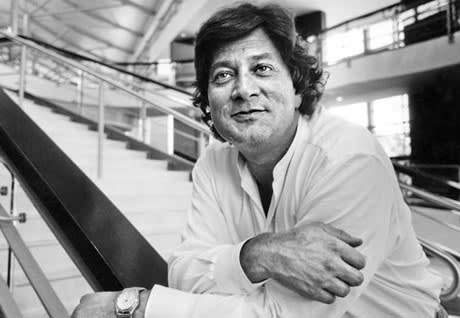Film producer, co-founder of Cineplex Odeon, trailblazer of Live Entertainment (Livent) and recipient of the Order of Canada, Garth Drabinsky has a storied past of great success and subsequent failure.
Being a man that attended the gala opening of the 2011 Toronto International Film Festival, only to be shuttled of to prison three days later, it should come as no surprise that controversy-chasing director Barry Avrich has made Garth the subject of his latest feature-length documentary, Show Stopper: The Theatrical Life of Garth Drabinsky.
This is the latest in a string of documentaries Avrich has made, adding to his list of moguls such as Lew Wasserman (the powerhouse behind MCA/Universal), concert promoter Michael Cohl and, most recently, Harvey Weinstein. In the case of his current endeavour, Avrich and Drabinsky were former business associates, leaving one to wonder just how much dirt was going to be aired about his former "friend."
The film starts at the very beginning of Drabinsky's career, quickly glossing over his upbringing and the challenges related to his polio diagnosis at a young age, which might have helped the narrative trajectory had it been fleshed out fully. We are presented with the opinion that his bout with polio instilled Garth with the drive and determination to succeed against all odds, but surely there had to have been more to it than that.
Following Drabinsky through later years, Avrich details his attempts to break into the world of cinema, producing a number of films, including The Silent Partner (1978) and The Changeling (1980). Having co-founded Cineplex Odeon, he was thrust into the spotlight as a ruthless businessman, going to war with Famous Players and subsequently wrangling his way into the ownership of what was to become Toronto's Pantages Theatre.
Avrich spends the latter half of the film outlining Livent's massive success in the world of theatre, domination of the Tony Awards in 1996 and its ultimate demise as the company's debts mounted, forcing the organization into bankruptcy in 1998, leading to the aforementioned arrest.
Predominantly a talking head documentary, with splashes of archival news, performance and interview footage, the film provides a balanced portrayal of its subject.
A handful of the actors that starred in Drabinsky's productions are interviewed, including Diahann Carroll, Elaine Stritch and Chita Rivera, who have nothing but fond memories of the man, which are juxtaposed with the hostility of former business associates and journalists. It makes for an informative, if somewhat redundant, documentary.
(eOne)Being a man that attended the gala opening of the 2011 Toronto International Film Festival, only to be shuttled of to prison three days later, it should come as no surprise that controversy-chasing director Barry Avrich has made Garth the subject of his latest feature-length documentary, Show Stopper: The Theatrical Life of Garth Drabinsky.
This is the latest in a string of documentaries Avrich has made, adding to his list of moguls such as Lew Wasserman (the powerhouse behind MCA/Universal), concert promoter Michael Cohl and, most recently, Harvey Weinstein. In the case of his current endeavour, Avrich and Drabinsky were former business associates, leaving one to wonder just how much dirt was going to be aired about his former "friend."
The film starts at the very beginning of Drabinsky's career, quickly glossing over his upbringing and the challenges related to his polio diagnosis at a young age, which might have helped the narrative trajectory had it been fleshed out fully. We are presented with the opinion that his bout with polio instilled Garth with the drive and determination to succeed against all odds, but surely there had to have been more to it than that.
Following Drabinsky through later years, Avrich details his attempts to break into the world of cinema, producing a number of films, including The Silent Partner (1978) and The Changeling (1980). Having co-founded Cineplex Odeon, he was thrust into the spotlight as a ruthless businessman, going to war with Famous Players and subsequently wrangling his way into the ownership of what was to become Toronto's Pantages Theatre.
Avrich spends the latter half of the film outlining Livent's massive success in the world of theatre, domination of the Tony Awards in 1996 and its ultimate demise as the company's debts mounted, forcing the organization into bankruptcy in 1998, leading to the aforementioned arrest.
Predominantly a talking head documentary, with splashes of archival news, performance and interview footage, the film provides a balanced portrayal of its subject.
A handful of the actors that starred in Drabinsky's productions are interviewed, including Diahann Carroll, Elaine Stritch and Chita Rivera, who have nothing but fond memories of the man, which are juxtaposed with the hostility of former business associates and journalists. It makes for an informative, if somewhat redundant, documentary.
